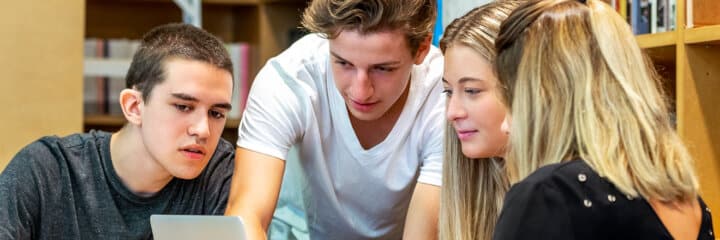Cognitive and neural mechanisms of inflectional morphology processing : Studies of native speakers and second language learners of Swedish
Andrea Schremm har forskat om de hjärnaktiviteter som används vid språkbearbetning och lärandet av svenska som andraspråk.
Andrea Schremm
Mikael Roll, Lunds universitet Merle Horne, Lunds universitet
Nuria Sagarra, The State University of New Jersey
Lunds universtitet
2018-09-14
Cognitive and neural mechanisms of inflectional morphology processing : Studies of native speakers and second language learners of Swedish
Cognitive and neural mechanisms of inflectional morphology processing : Studies of native speakers and second language learners of Swedish
The present dissertation investigates inflectional morphology processing in native speakers and second language (L2) learners of Swedish. Results of Study 1 suggest that two separate neural mechanisms might be available for native comprehension of inflected words, as reflected in event-related brain potentials obtained for visually presented verb forms. Overregularized verbs (e.g. *bär+de ‘bear + past tense’) yielded a left anterior negativity (LAN), indicating decompositional processing of the regular tense inflection versus whole-word retrieval of correct irregular verb forms (e.g. bär ‘bore’). Enhanced long-range neural oscillatory phase synchrony observed for familiar irregular words potentially reflected increased engagement of the ventral language processing stream during whole-word access. As Swedish is characterized by a predictive association between specific word stem tones and upcoming suffixes, facilitating speech processing, Study 2 examines the integration of tonal cues into the native morphological system. Correlational analysis was conducted between cortical thickness in selected brain regions and individual participants’ response time patterns for suffix recognition following the tonal cue in real words (e.g. hattAccent 1+en ‘hat+sg’) and pseudowords (e.g. kvutAccent 1+en ‘kvut+sg’). Results suggest that the left planum temporale might play a role when tones are accessed as part of whole-word memory representations, whereas the pars opercularis of the left inferior frontal gyrus could potentially support rule-based decompositional analysis of cued suffixes when no stored full-form representations are present. Study 3 focuses on the L2 acquisition of the tonal aspects of Swedish inflectional morphology. Response time patterns to inflected verbs indicate facilitated processing of word endings validly cued by the preceding stem tone in proficient L2 learners of Swedish, who had not received any explicit information about the tested L2 regularity. As these results suggested gradual and slow implicit acquisition of tone-suffix associations through exposure to L2 input, Study 4 explores possibilities of training the L2 feature at earlier stages of learning. Performance data collected during a two-week-period of training with a game prototype show gradually faster and more accurate responses to suffixes cued by preceding tones, indicating that low proficient learners start to integrate Swedish word accents into their L2 morphological processing system.
Relaterade länkar

Juridik
 Gy–Vux
Gy–Vux
Fysisk aktivitet och motorik i förskolan
 Fsk
Fsk


